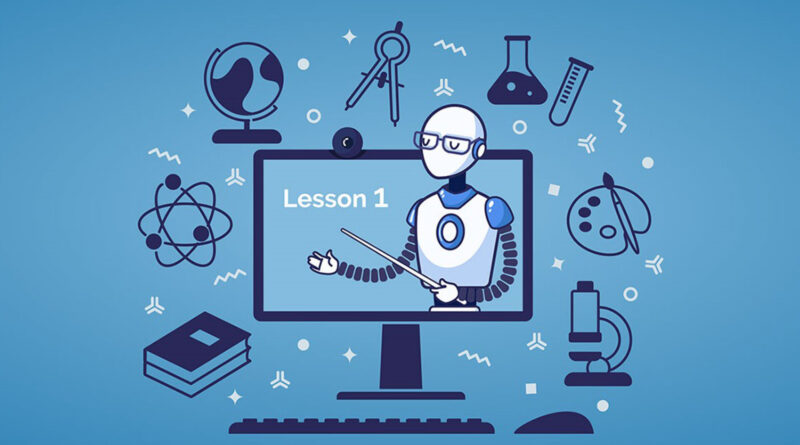Artificial Intelligence in Education
According to a recent report from Global Market Insights, the global market for artificial intelligence in education is predicted to reach $30 billion by 2032 amid advances in the field of machine learning. As AI tools like ChatGPT become more ubiquitous in K-12 classrooms and accessible to students, some teachers and education leaders say outright bans are less likely to be successful than implementations in personalized education and teaching problem-solving. Artificial Intelligence in Education.
That need to weigh AI’s benefits against its potential drawbacks was among the main focuses of a Tuesday webinar for the 2023 Consortium for School Networking (CoSN) annual conference, led by Indiana Chief Technology Officer Council Founding Chairman Pete Just, Wake County Public School System Director of Digital Learning and Libraries Allison Reid, School City of Mishawaka Curriculum Integration Specialist Alison Schlotfeldt, and Hinsdale Township High School District CIO Keith Bockwoldt. The discussion, titled “Education & the Artificial Intelligence (AI) Conundrum,” centered on the latest capabilities and limitations of AI ed-tech tools, and how to use language-optimizing models like ChatGPT ethically and responsibly.
Tools Help Guide
According to the panelists, tools like ChatGPT can be used to help guide students in general problem-solving, similar to how search engines can help students get past writer’s block on essay ideas. Similar to CoSN’s recent report, Artificial Intelligence (AI) in K-12, the panel noted that AI tools could also help educators formulate personalized lesson plans for students that support adaptive learning.
However, while AI tools like ChatGPT have made leaps in terms of capability in recent months, these machine learning programs still have more than a few limitations and hiccups, such as AI hallucinations, which occur when an AI responds to an inquiry in ways that do not make sense. AI outputs also often generate incorrect, biased or even “harmful” information and instructions as responses to questions, according to the panel.
Despite technical kinks to work out with current AI technology, the panel generally disagreed with banning tools like ChatGPT, as some districts in the U.S. have done since its launch late last year.
Utilize the tool rather than Shying Away
“You can fight ChatGPT all you want, but kids are going to find ways to use it even if we block it,” Reid said, emphasizing the need to utilize the tool rather than shying away from it. Just said schools must teach students how to use AI technologies effectively and ethically as part of a broader push toward promoting K-12 digital literacy and helping students build science, technology, engineering and math (STEM) skill sets and aptitudes that will be needed in the workforce of tomorrow.
Schlotfeldt added that schools must accept and embrace the rise of AI ed-tech tools, much like with other classroom technologies now commonplace in K-12 schools, such as Chromebooks, game-based learning programs and tech tools for teachers that help with grading and course planning, among other uses.
“We can’t block the calculator. We can’t block ChatGPT,” she said. “We just have to adapt and overcome.”
Source: Artificial Intelligence in Education
https://www.techedmagazine.com/category/news-by-industry/
https://www.govtech.com/education/k-12/cosn-23-where-is-the-ai-conundrum-in-education-headed
CoSN ’23: Where Is the ‘AI Conundrum’ in Education Headed?
A Tuesday webinar at the annual Consortium for School Networking (CoSN) conference explored the pros, cons and potential classroom applications of artificial intelligence tools like ChatGPT.

